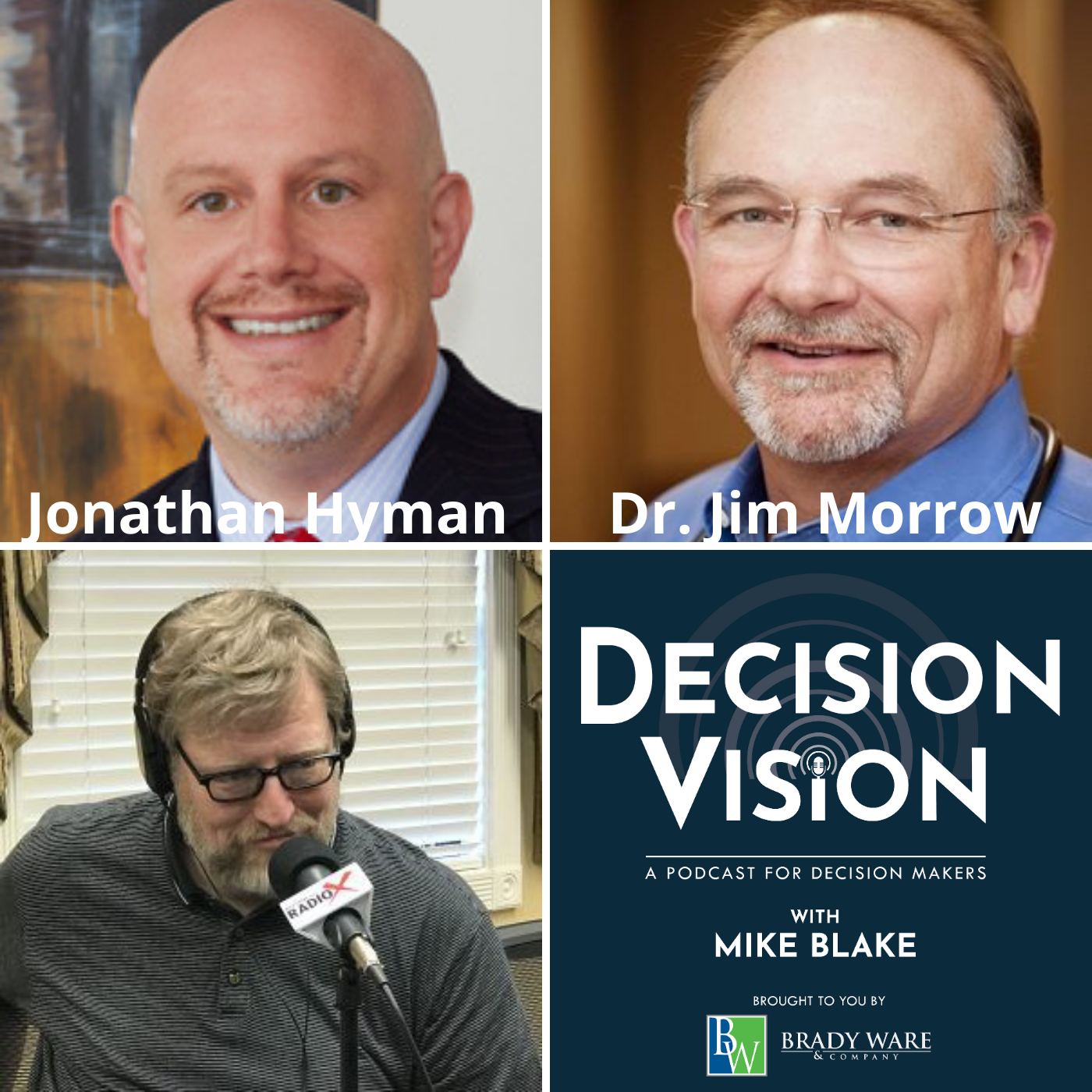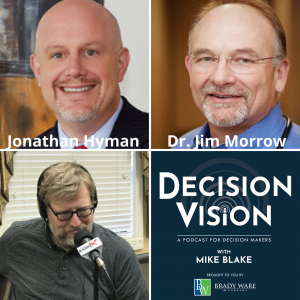

Can I Require My Employees to Get the Covid-19 Vaccine, with Jonathan Hyman, Wickens Herzer Panza
Jonathan Hyman: [00:00:00] The short answer is yes, but the longer answer is it’s yes, but you must make allowance for those people that cannot get the vaccine either because they have an underlying physical or mental impairment, a disability for which the vaccine is contraindicated. They say, “I have a medical issue, so you need to provide me an accommodation for that medical issue to your mandatory vaccination policy,” or for an employee that holds a sincerely held religious belief observance or practice for which they can’t get a vaccine, and an employer has to consider an accommodation for that as well.
Jonathan Hyman: [00:00:38] In both those cases, the accommodation doesn’t have to be and probably shouldn’t be, “Come to work anyway. We’re requiring proof of vaccination to work. Come to work, even though you can’t meet this policy, but you have to go through the same and interactive process,” as we talked about earlier. Talk to the employee, figure out what accommodation you can make. And the accommodation, at the end of the day, might be we just can’t accommodate this because we have a legitimate business interest in protecting our other employees from the vaccine. And you just can’t come back to work. But you have to at least go through the process with the employee to figure out whether there is an accommodation you can make.
Jonathan Hyman: [00:01:15] But let me also add, and I think what complicates the equation is I don’t think the question is as easy as, can you require a vaccine or proof of the vaccine as a condition of employment? Because I think just because you can do it, the law says you can doesn’t necessarily mean that you should. I think if you look at the data that’s out there, as I mentioned earlier, we know about 60 percent say they will absolutely, under every set of circumstances, get the vaccine when they’re able to do so. There’s another 20 percent or so that say they will not get the vaccine, whether it’s because of a medical issue, or a religious belief, or because they were tin foil on their heads and they think the government is implanting 5G trackers in them through the vaccine or for whatever reason. And then, there’s 20 percent that are kind of undecided on the fence.
Jonathan Hyman: [00:02:03] And to me, I think if an employer has a mandatory policy that shout, “Get the vaccine when you can,” you are going to lose the 20 percent that are never going to get the vaccine whether their reason is legitimate or illegitimate. You’re going to risk alienating some percentage of your employees are going to get the vaccine anyway because they’re going to view you as too intrusive, up in their medical business, invading their privacy, what have you. So, you risk alienating a percentage of employees that are going to get the shot anyway.
Jonathan Hyman: [00:02:30] And so, what I think employers should be doing is rather than pissing off a whole bunch of your employees and, at the end of the day, not changing any of their behaviors, what you should be focusing on is that 20 or so percent in the middle, and arm them with education, resources, information as to the safety and efficacy of the vaccine, and why it’s in there, and everybody’s best interest for them to get the vaccine, and try and push some of them over to the ‘Yeah, we’re going to get vaccinated,” side of the equation.
Jonathan Hyman, Attorney, Wickens Herzer Panza
Mr. Hyman is a member of the Firm’s Litigation Department and Employment & Labor practice group and serves on the Board of Directors. He focuses his practice on management-side labor and employment law, providing businesses proactive solutions to solve their workforce problems and reactive solutions when they find themselves litigating against an employee or group of employees.
Proactively, Mr. Hyman serves as outside in-house counsel for businesses. He is the voice on the other end of a phone when a business needs advice on firing an employee, a policy or agreement drafted, guidance on a leave of absence, disability accommodation, or internal complaint or investigation, or information on any number of other issues that plague human resources professionals and businesses daily. Mr. Hyman also has extensive experience on more specialized labor and employment law issues, such as wage and hour compliance, social media, cybersecurity, and other workplace technology concerns, affirmative action compliance, and union avoidance and labor relations.
Reactively, Mr. Hyman represents businesses in employment and labor litigation, including discrimination, retaliation, harassment, and claims, non-competition and trade-secret misappropriation disputes, wage-and-hour class and collective actions, and union certification and decertification matters.
He is also the author of the renowned and award-winning Ohio Employer Law Blog (www.ohioemployerlawblog.com, an American Bar Association Blawg Hall of Fame inductee), which he updates daily to provide businesses and human resources professionals breaking news and other updates on the ever-changing landscape of labor and employment law.
Wickens Herzer Panza has been committed to providing sound legal guidance to businesses of Lorain & Cuyahoga Counties since 1932. Wickens Herzer Panza provides legal counsel to family- and privately-owned businesses in the areas of Business Organizations & Tax, Probate & Estate Planning, Elder Law and Business Litigation. We’re more than legal counsel, too. We’re a business partnership, an advocate for our clients and advisors who support, give advice and protect those we work with. We are our clients’ trusted advisor and make it our mission to be responsive, accountable, proactive and client-centered. Our Firm has offices in Avon, Ohio, and Sandusky, Ohio.
Mr. Hyman joined Wickens Herzer Panza in March of 2021, and was previously with Meyers, Roman, Friedberg & Lewis in Cleveland, Ohio. (Note: this show was taped prior to Mr. Hyman’s change of firms.)
Wickens Herzer Panza website | Hyman LinkedIn
Listen to Jonathan’s full Decision Vision interview here.
The “One Minute Interview” series is produced by John Ray and in the North Fulton studio of Business RadioX® in Alpharetta. You can find the full archive of shows by following this link.
Renasant Bank has humble roots, starting in 1904 as a $100,000 bank in a Lee County, Mississippi, bakery. Since then, Renasant has grown to become one of the Southeast’s strongest financial institutions with over $13 billion in assets and more than 190 banking, lending, wealth management and financial services offices in Mississippi, Alabama, Tennessee, Georgia and Florida. All of Renasant’s success stems from each of their banker’s commitment to investing in their communities as a way of better understanding the people they serve. At Renasant Bank, they understand you because they work and live alongside you every day.















